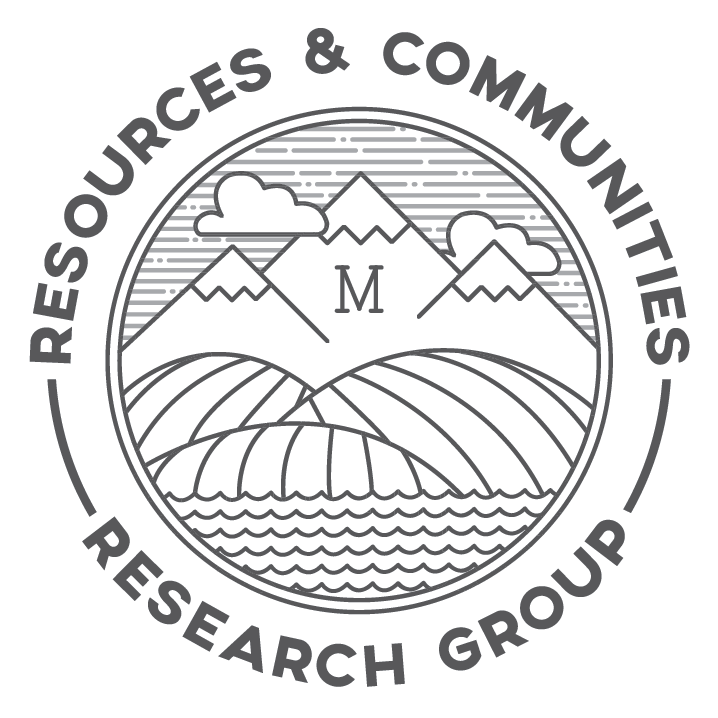Much of my research over the past decade has focused on the response of rural communities to the impacts of industrial-scale energy development. This work has involved documenting impacts and examining local approaches to their mitigation and engaging with energy communities as partners in applied research. Questions driving this research are: Under what circumstances can large-scale energy development, including both power generation and fossil fuel extraction, contribute to rural sustainability? How are costs and benefits of energy choices measured and mitigated—and by whom? What influence do local stakeholders have in shaping investments in energy development and what are the outcomes of their involvement? Three of my current PhD advisees have projects focused on these questions, Kristin Smith, who works in the Bakken and Kathryn Bills Walsh, who studies coal bed methane in the Powder River Basin, and Kelli Roemer, who is studying the coal transition.
Our Escaping the Resource Curse project considered these questions and has produced a series of publications and reports focused on the Marcellus, the Bakken and the Powder River Basin.
As unconventional oil and gas development has boomed around the world, so too has the number of studies of its social impacts. I’ve been especially interested in synthesis and coordination in the Energy Impacts research world. To that end:
With Dr. Jeffrey Jacquet at Ohio State Univ., I currently co-chair the NSF-funded Energy Impacts Research Coordination Network to coordinate social science research concerned with how people and places experience energy development and energy transitions.
Research Fatigue in Rural Communities is a collaborative project with partners at MSU and also Ohio State University, Sam Houston State University, Pennsylvania State University and Colorado School of Mines. Funded by the USDA, the work focuses on the issue of research fatigue on the part of human subject participants in research on social impacts of energy development. It involves a major literature review, focus groups and surveys with researchers, and informal interviews with key informants in energy communities.
